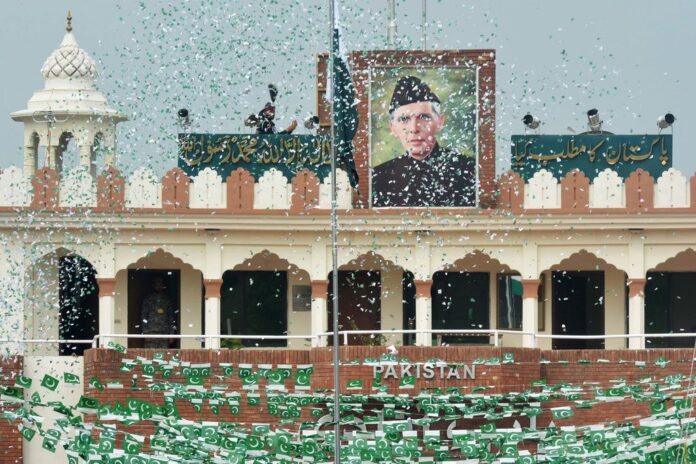Commemorated as National Minorities’ Day since 2009, Muhammad Ali Jinnah’s August 11, 1947, address to the Constituent Assembly is often cited as irrefutable evidence of Pakistan’s minority-inclusive vision.
Jinnah’s candid observation of the newly-formed Pakistan’s behemothian diversity is accompanied with a pronounced emphasis on religious freedom. When Jinnah said that “You may belong to any religion or caste or creed and that has nothing to do with the business of the State”, he was echoing the secular vision closely guarded during the 1947 struggle for a separate state.
Almost 75 years down the road, Pakistan is anything but a haven for religious minorities. 2021 has seen a cyclical repetition of the endemic forced conversions, opportunistic blasphemy charges and charged attacks on Hindu temples and Ahmadiyya worship places. The state’s failure doesn’t only lie in its apathetic silence, but also in its active attempts to perpetuate the self-serving fundamentalist propaganda.
ASSAULT ON WORSHIP PLACES
Just a few days ago, on Aug 4, 2021, hundreds of people vandalized a Hindu temple in Bhong Town, Rahim Yar Khan, after local courts granted bail to a nine-year old Hindu boy in a desecration case. A charged social media hate campaign was launched against the Hindu community, despite initial reports of having amicably resolved the issue, and soon enough, a violent mob stormed the temple.
This is not an “isolated case”. Minorities’ places of worship are either rapidly disappearing, sold by the Evacuee Trust Property Board, or being brutally destroyed. Whether it’s the 2014 burning of the Larkana temple or the planned vandalizing of the temple in Tharparkar’s Nagarparkar sub-district in October 2020, state institutions do nothing but add to the problem.
The Evacuee Trust Property Board was set up, soon after the 1947 Partition, to manage the property, notably places of worship, left behind by non-Muslim communities. Despite not having the right to sell the property, it has repeatedly done so. The last Chair of the Board, Asif Hashmi, had several charges of corruption, mishandling of donations worth millions of rupees, and not surprisingly, was acquitted by the courts.
Minority communities have repeatedly emphasized the sheer injustice of having few minorities in the Board, and of the Board’s chairman never once been a non-Muslim. This is especially painful for members of the Hindu faith, whose religion dictates that Hindu temples are only to be managed by Hindus.
SNC AND ITS MANY WOES
It has been no secret that the Single National Curriculum, introduced in 2020, furthers religious prejudice and discrimination.
Prescribing lessons in Urdu and English courses that are already a part of the Islamiat curriculum, this furthers the government’s puritan attempts to ideologically inject fundamentalist worldviews into its citizens.
When challenged to justify this violation of constitutional right, officials at Ministry of Federal Education and Professional Training suggest solutions that further exclude religious minorities: they want teachers to ask non-Muslim students to leave the class during such lessons (and do what, they do not say). They also suggested that non-Muslim students should be exempted from answering examination questions relating to such lessons, a risk that few students would want to take in educational institutions which are often prejudiced against them. An unsustainable solution, this suggestion reeks of privileged ignorance.
Marketed as the magic wand solving Pakistan’s “educational apartheid”, the PTI government casually glosses over the religious apartheid set to be furthered by it. Sindh, citing the 18th Amendment, refused the Curriculum, while Punjab has been the first province to partially implement it in madrassas and from grades one to five in both public and private schools.
Given the infrastructure of hate strong-manning religious minorities every day, this year’s National Minorities Day, once again, demands a somber introspection. 74 years ago, while addressing an Assembly set to govern a multitude of ethnicities and minorities, Jinnah drew a parallel with the 1947 struggle for independence to point out that oppression inevitably breeds resistance: “Nobody could have conquered you, and even if it had happened, nobody could have continued its hold on you for any length of time.” It would serve us well to remember these words.

